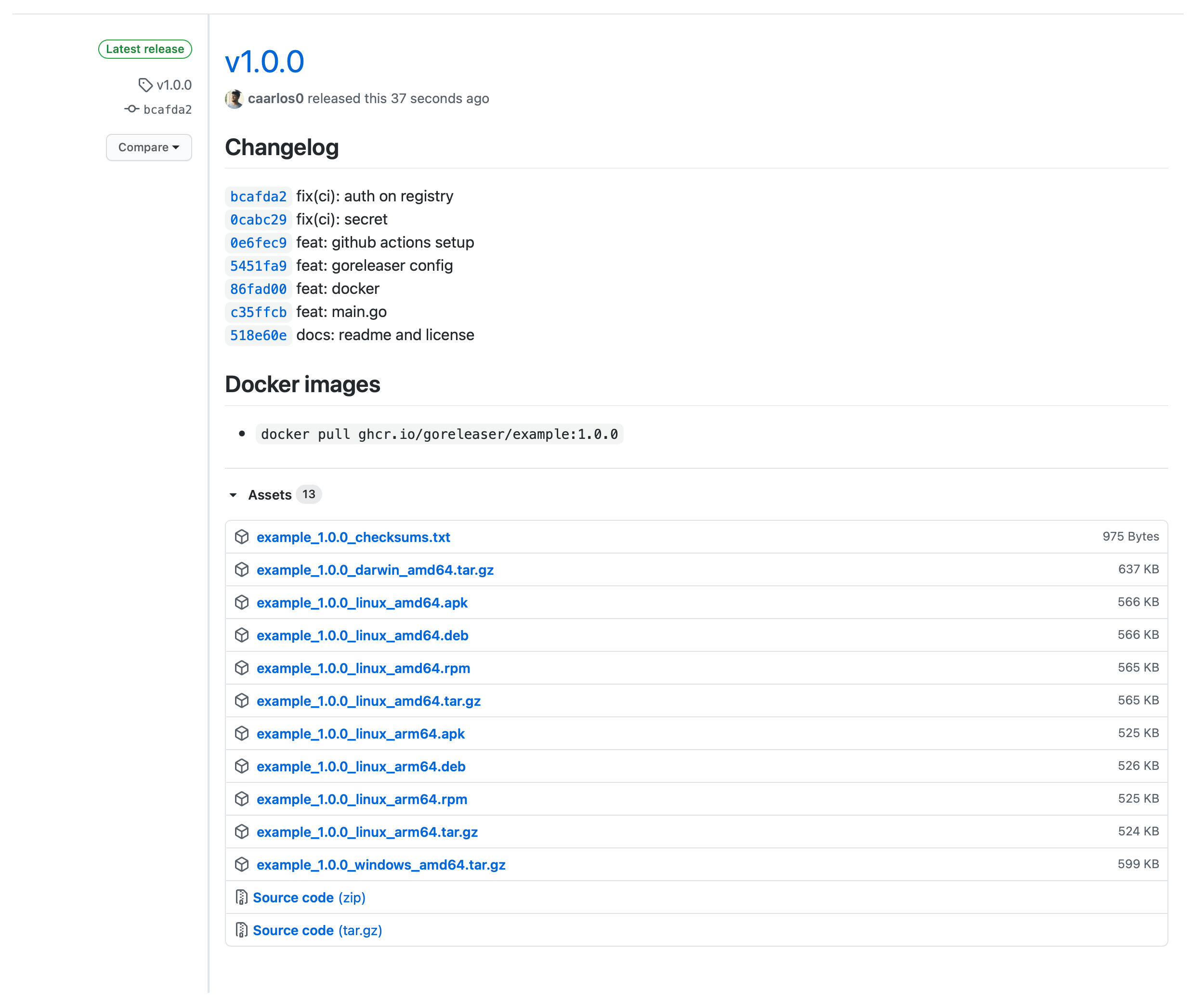You've already forked goreleaser
mirror of
https://github.com/goreleaser/goreleaser.git
synced 2025-07-01 00:54:57 +02:00
Background --- When a git repository is hosted in multiple GitLab instances the `.goreleaser.yml` needs to take in consideration both APIs endpoints. At the moment it defaults to GitLab.com and you can override it with `gitlab_urls` however this forces you to only support 1 GitLab instance. We need this for https://gitlab.com/gitlab-com/gl-infra/infrastructure/-/issues/14122 where we have a tool that is developed on GitLab.com but then mirrored to an internal GitLab instance since we need it to operate GitLab.com even when it's down. Solution --- Support templates like `{{ .Env.CI_SERVER_URL }}` for the `gitlab_urls`, `github_urls` and `gitea_urls` so it can use environment variables and the same `.goreleaser` file can be used in multiple SCM instances. Co-authored-by: Carlos Alexandro Becker <caarlos0@users.noreply.github.com>
1.3 KiB
1.3 KiB
GitHub
API Token
GoReleaser requires an API token with the repo scope selected to deploy the artifacts to GitHub.
You can create one here.
This token should be added to the environment variables as GITHUB_TOKEN.
Alternatively, you can provide the GitHub token in a file.
GoReleaser will check ~/.config/goreleaser/github_token by default, but you can change that in the .goreleaser.yml file:
# .goreleaser.yml
env_files:
github_token: ~/.path/to/my/github_token
GitHub Enterprise
You can use GoReleaser with GitHub Enterprise by providing its URLs in the
.goreleaser.yml configuration file. This takes a normal string or a template
value.
# .goreleaser.yml
github_urls:
api: https://git.company.com/api/v3/
upload: https://git.company.com/api/uploads/
download: https://git.company.com/
# set to true if you use a self-signed certificate
skip_tls_verify: false
If none are set, they default to GitHub's public URLs.
Example release
Here's an example of how the release might look like:
